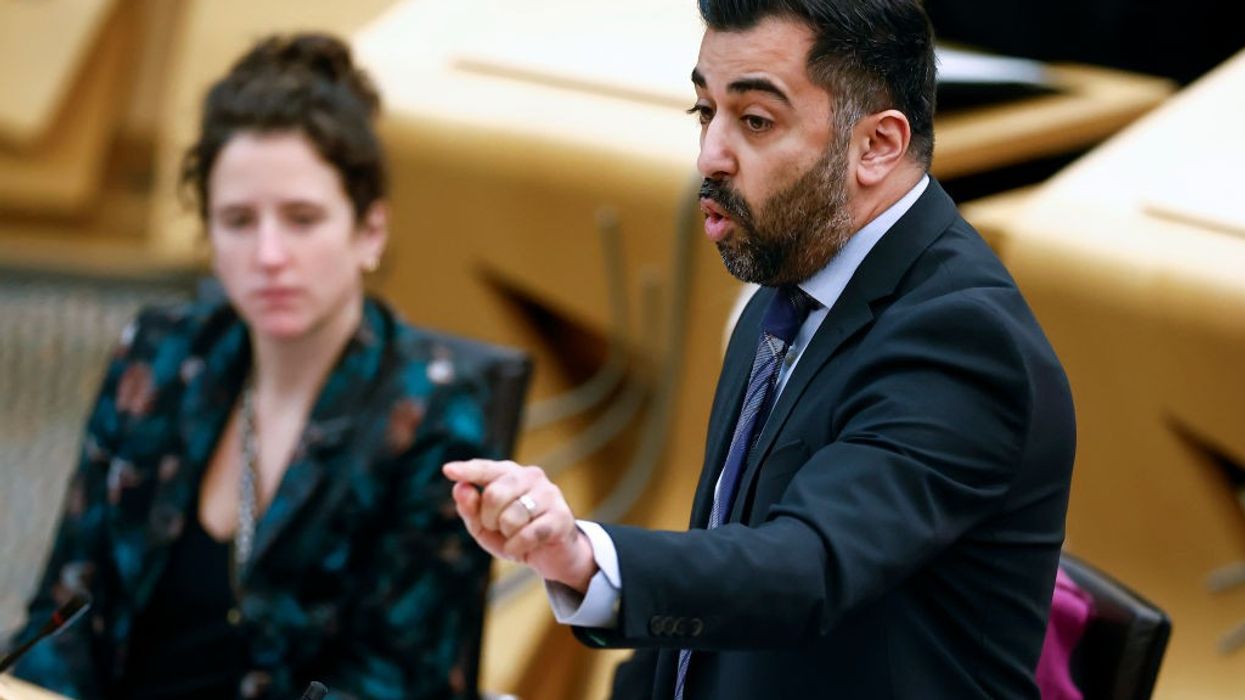THE UK government's blocking of a controversial Scottish gender recognition law was ruled lawful by Scotland's highest civil court.
The legislation, passed by the Scottish parliament in December, would have made it easier and faster for people to officially change their gender, dropping the requirement for a gender dysphoria medical diagnosis.
The Scottish government in April challenged the UK government's blocking of the bill, paving the way for a legal showdown between the two administrations.
"The challenge to the order pronounced under section 35 of the 1998 Act, laid on 17 January 2023, fails," said Lady Haldane, who presided over two days of evidence at Edinburgh's Court of Session in September.
"In so concluding, it is important to recognise the novelty and complexity of the arguments and the sophisticated manner in which those arguments were presented before me and from which I derived considerable assistance," she added.
Scotland's leader Humza Yousaf said on X, formerly Twitter, that Friday's ruling marked "a dark day for devolution".
The legislation, which received cross-party support in Scotland's Parliament when it was passed last year would have allowed people aged 16 and 17 to change their gender.
It also reduced from two years to three months -- or six months for 16-17 year-olds -- the time needed for an applicant to live in their new gender before it is officially recognised.
UK laws require people to be aged 18 to apply for a gender recognition certificate.
Campaigners against the reforms, which included Harry Potter author J K Rowling, warned the legislation risked the safety of women and girls.
Scotland's social justice minister Shirley-Anne Somerville said that by preventing the Gender Recognition Reform Bill, the UK government was setting a "dangerous constitutional precedent".
"The Gender Recognition Reform Bill was passed by an overwhelming majority of the Scottish Parliament, with support from members of all parties," Somerville said in a statement.
"The use of Section 35 is an unprecedented challenge to the Scottish Parliament's ability to legislate on clearly devolved matters."
Scotland secretary Alister Jack said in January that he would use section 35 of the Scotland Act 1998 to prevent the bill from proceeding to Royal Assent, the final stage required to get proposed legislation onto the statute books.
He said he was concerned that the move by the devolved legislature in Edinburgh would negatively affect equalities legislation across England, Scotland and Wales.
Under devolution rules, which led to the establishment of the Scottish parliament in 1999, London can block legislation if ministers believe it will have an "adverse effect on the operation of the law".
(AFP)







 South African president Cyril Ramaphosa (R) welcomes Indian prime minister Narendra Modi as he arrives for the opening of the G20 Leaders' Summit at the Nasrec Expo Centre in Johannesburg on November 22, 2025. (Photo by Halden KROG / POOL / AFP via Getty Images)
South African president Cyril Ramaphosa (R) welcomes Indian prime minister Narendra Modi as he arrives for the opening of the G20 Leaders' Summit at the Nasrec Expo Centre in Johannesburg on November 22, 2025. (Photo by Halden KROG / POOL / AFP via Getty Images)






